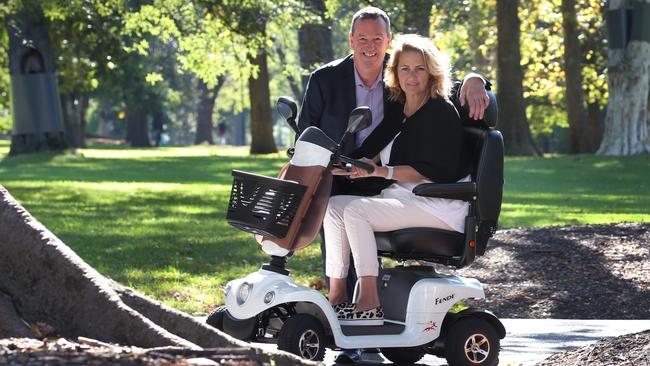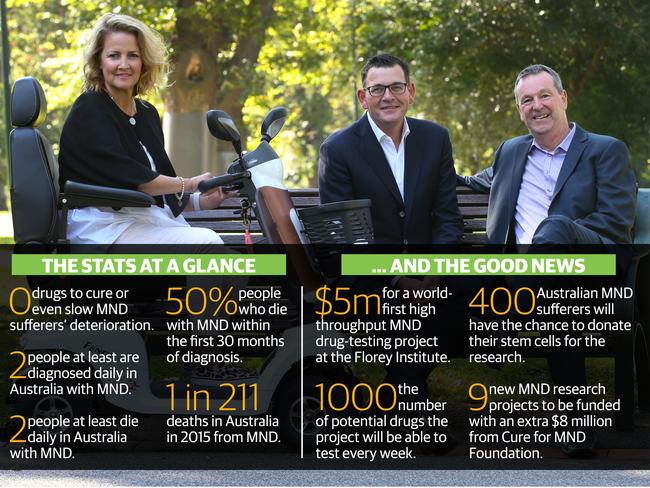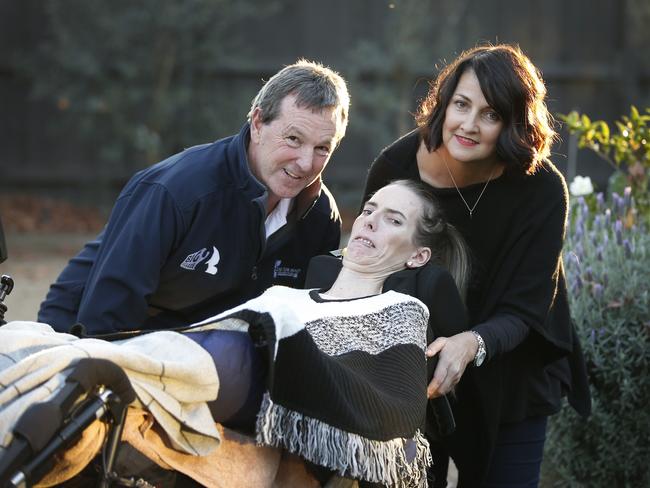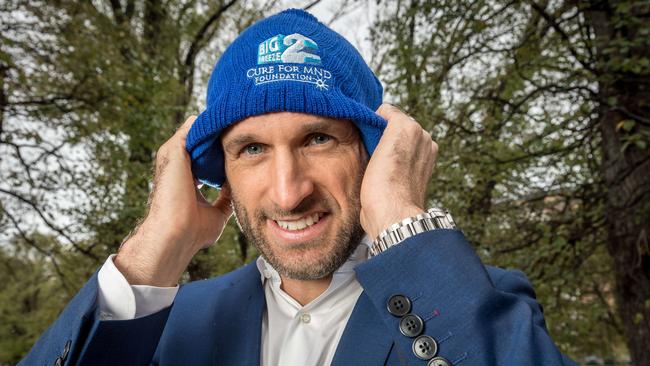Melbourne MND research to speed up drug tests 160-fold
EXCLUSIVE: WORLD-first Melbourne research to fight the deadly motor neurone disease will speed up drug tests 160-fold and give sufferers such as footy legend Neale Daniher hope for a cure.

VIC News
Don't miss out on the headlines from VIC News. Followed categories will be added to My News.
WORLD-first Melbourne research to fight the deadly motor neurone disease will speed up drug tests 160-fold and give sufferers such as footy legend Neale Daniher hope for a cure.
The $5 million project will give Florey Institute researchers a chance to fast-track drug tests on human motor neuron cells. The state government will today reveal plans to kickstart the project with a $3 million grant.
The testing technique — known as high-throughput drug screening — has been used to find treatments for forms of cancer, diabetes and HIV, but has never been applied to MND.
“We have limited time, so anything that has the potential to fast-track a cure gives us hope,” said Mr Daniher.
There is no known cure or treatment for MND, which in 2015 accounted for one in every 211 deaths in Australia.
Mr Daniher added: “At the moment, the research is slow and the process of identifying drugs that can be used for clinical trials takes time. When you’re diagnosed with MND, time is a precious commodity.”
The $5 million project — which will be topped up with $2 million from the Cure for MND Foundation’s fundraising efforts from events such as The Big Freeze at the ’G — will use Nobel prize-winning and the latest stem cell technologies.

MND ADVOCATE NEALE DANIHER NAMED MELBURNIAN OF THE YEAR
Existing drugs and compounds, many of which are used to treat other diseases, will be tested on Australian MND sufferers’ motor neuron cells, grown in a laboratory from their stem cells extracted from small samples of their skin.
The foundation will also announce at its first symposium today that it will donate more than $8 million to nine other Australian-based research projects into MND.
Mr Daniher said he and two fellow sufferers, foundation founder Dr Ian Davis and Cath Baker, would be first to donate their skin samples for the fast-track project.
Ms Baker was the carer for much-loved Angie Cunningham, who died from MND last year after spending huge amounts of time and energy raising MND awareness.
CATH BAKER STRUCK DOWN WITH MND AFTER CARING FOR ANGIE CUNNINGHAM
HAMISH MCLACHLAN INTERVIEWS ANGIE CUNNINGHAM ABOUT HER MND BATTLE OVER FIVE MONTHS

Premier Daniel Andrews said his government’s commitment to help “unlock the mystery” of the most devastating of degenerative diseases was urgent. “It is also worth noting Neale’s great act of kindness in giving his precious time to raising awareness and money for the MND cause,” he said.
“We wouldn’t even have known to fund this research if it wasn’t for the leadership Neale and his team have shown,” Mr Andrews added.
Dr Davis said the live motor neuron cells from MND sufferers would be exposed to 1000 drugs a week in fast-paced robotic screening process. Currently, only six drugs a week can be tested.
“If we find a hit with any of these drugs, and they are already approved for use in humans with other diseases, this gives a massive shortcut for MND sufferers desperate for a potential treatment,” said Dr Davis, whose own MND is advancing.
“We’ll be able to take it from the lab straight to a phase-two clinical trial, potentially. For us, time is life.”
To donate to motor neurone disease research or for details about how to be part of the research project, visit CUREMND.ORG.AU



